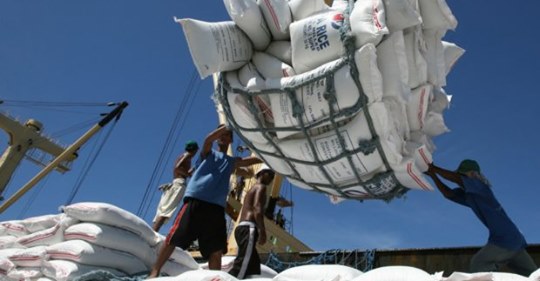PH to import 300,000 tons of rice
MANILA, Philippines — The government is prepared to import 300,000 metric tons of rice “if necessary” amid the Luzon-wide quarantine to stop the spread of the new coronavirus disease (COVID-19), according to Cabinet Secretary Karlo Nograles.
The Inter-Agency Task Force for the Management of Emerging Infectious Diseases has approved the Department of Agriculture’s (DA) recommendation for the government to government importation of an additional 300,000 metric tons of the country’s staple food if needed.
This would be with trading partners from the Association of Southeast Asian Nations (Asean) or other sources including India and Pakistan, Nograles said.
He also said the DA, along with the Department of Finance and the Department of Trade and Industry, would work with Asean trading partners and encourage them not to impose trade-restrictive measures to ensure that existing supply contracts are prioritized.
This came following reports that Vietnam had suspended rice imports to ensure it would have enough supply at home.
Nograles also reiterated that farming and fishing are allowed during the Luzon-wide quarantine, and all supplies used for agriculture must move freely. The DA’s Ahon Lahat, Pagkaing Sapat Contra sa COVID-19 or Plant, Plant,Plant Program would also be given a P31-billion budget to ensure food adequacy in the country.
Local price councils have also been reactivated to implement the price freeze and the suggested retail price, he said.
The country may be facing a looming food shortage after the government of Vietnam stopped rice exports in anticipation of the adverse impact of the coronavirus pandemic on the global economy, party list group Bayan Muna warned on Saturday.
Deputy Minority Leader and Bayan Muna Rep. Carlos Isagani Zarate warned that more countries were likely to follow Vietnam’s moves.
Disclaimer: The comments uploaded on this site do not necessarily represent or reflect the views of management and owner of Cebudailynews. We reserve the right to exclude comments that we deem to be inconsistent with our editorial standards.


